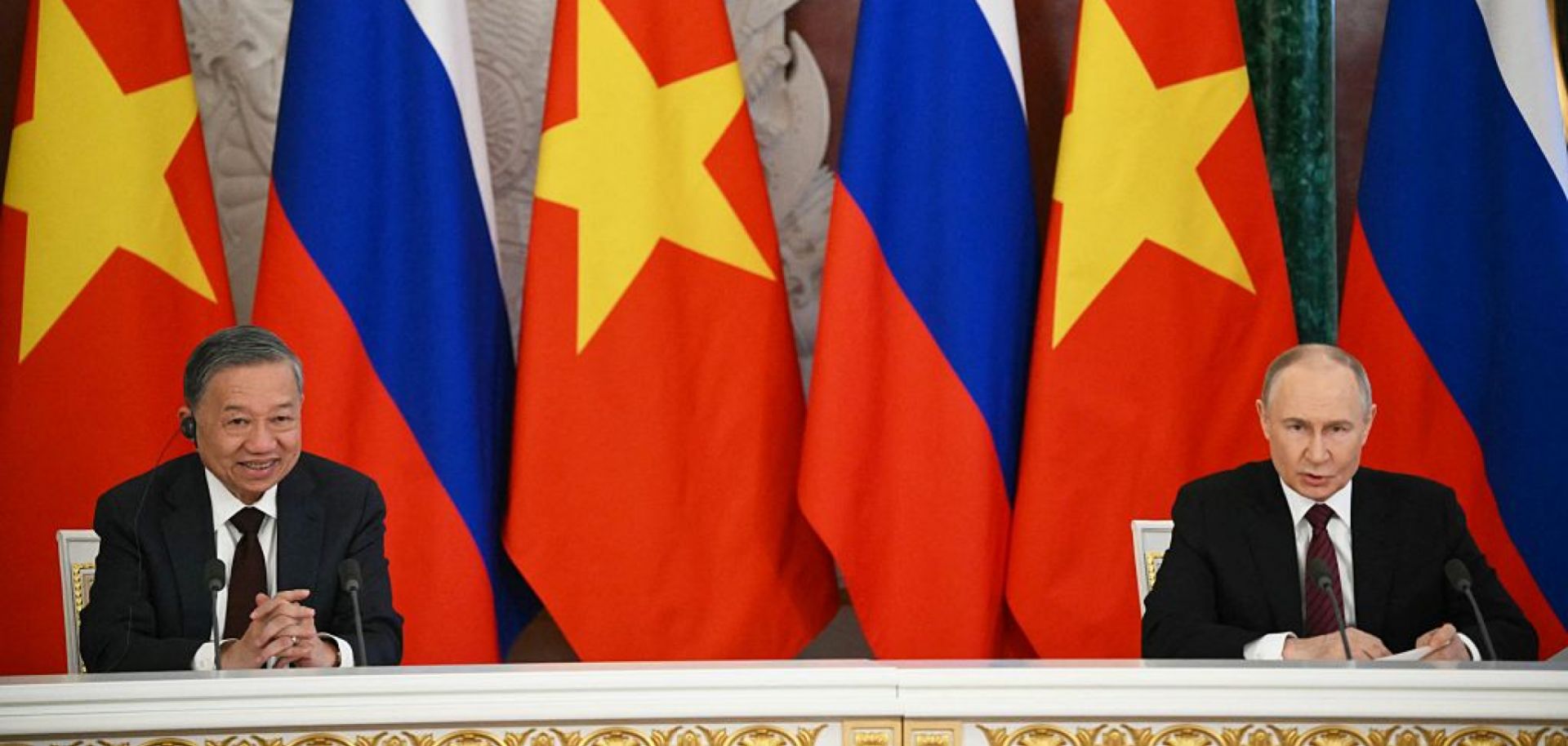Vietnam's expanding partnerships with Eurasian countries, chiefly Russia, will enhance its multialigned position and give Moscow an opening to reassert influence in Southeast Asia, but structural constraints will limit the extent of cooperation. From May 6-12, Vietnamese Communist Party General Secretary To Lam, the country's de facto top leader, undertook a high-profile diplomatic tour of Azerbaijan, Kazakhstan, Belarus and Russia. The trip culminated in a landmark summit on May 9 with Russian President Vladimir Putin in Moscow, during which the two sides issued a 33-point joint statement outlining the 2026-30 Vietnam-Russia Strategic Partnership Plan, which significantly deepens ties between the two countries under their comprehensive strategic partnership framework. The updated framework includes accelerated finalization of negotiations to implement two Russian-built nuclear power plants in Vietnam's Ninh Thuan province with a planned combined capacity of 6.4 gigawatts and an operational target of 2030 to 2035. The new strategic partnership plan also...

